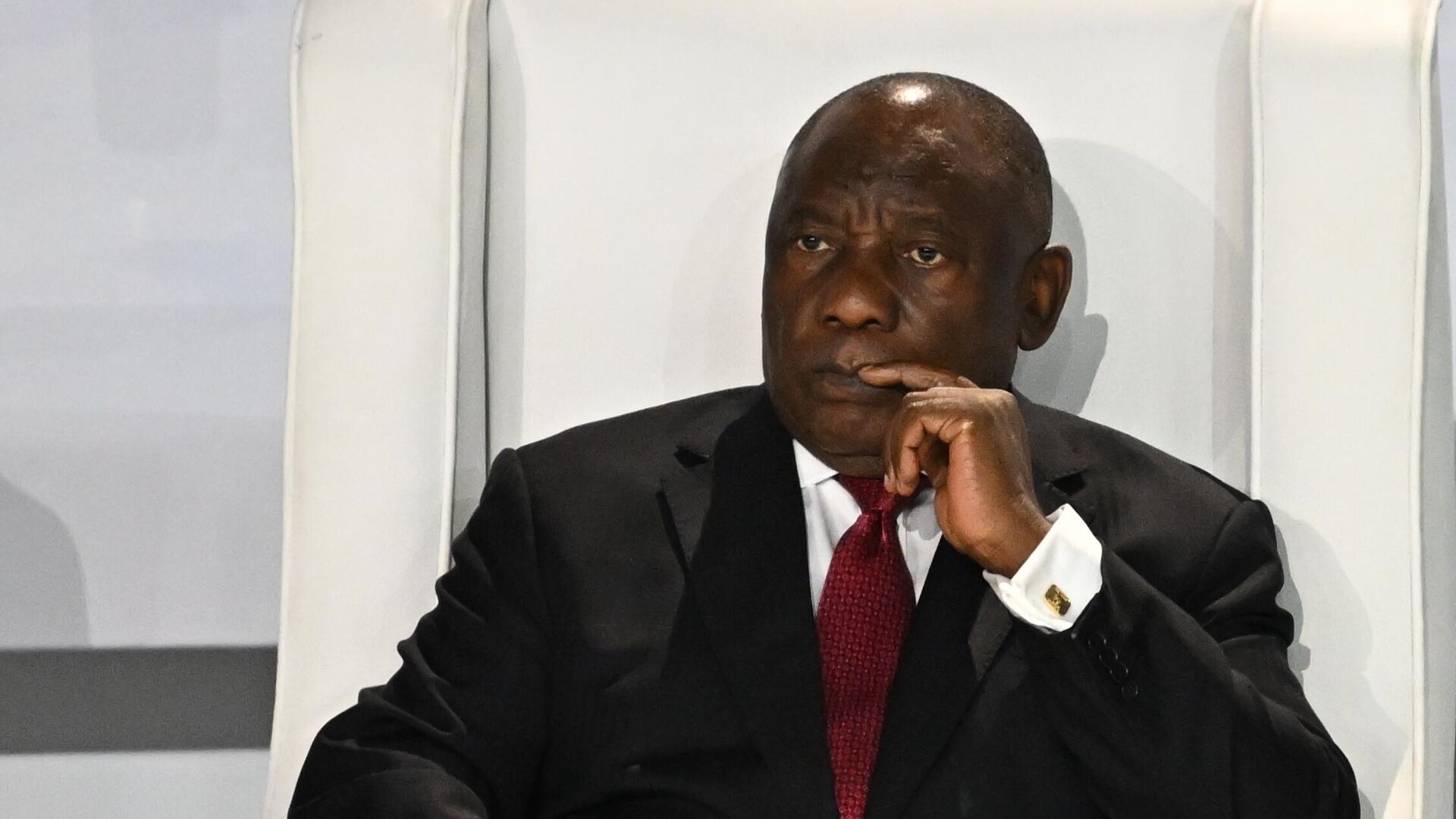https://en.sputniknews.africa/20240602/south-africas-ramaphosa-signs-law-on-changes-to-retirement-system-with-funds-early-withdrawal-1066842639.html
South Africa's Ramaphosa Signs Law on Changes to Retirement System With Funds' Early Withdrawal
South Africa's Ramaphosa Signs Law on Changes to Retirement System With Funds' Early Withdrawal
Sputnik Africa
According to a 2023 report from the Paris-based Organization for Economic Co-operation and Development, the South African pension is up to 1,990 rand (about... 02.06.2024, Sputnik Africa
2024-06-02T13:20+0200
2024-06-02T13:20+0200
2024-06-03T11:00+0200
sub-saharan africa
cyril ramaphosa
south africa
southern africa
law
pension
president
legislation
intelligence
https://cdn1.img.sputniknews.africa/img/07e7/09/13/1062226880_0:116:2255:1384_1920x0_80_0_0_b7fdcaf64b9c9c28125b42004c0cc144.jpg
South Africa's President Cyril Ramaphosa enacted the Revenue Laws Amendment Bill of 2023 on Saturday.The amendment implements a "two-pot" retirement system that permits employees in both the private and public sectors to withdraw restricted amounts of their pensions without the need to quit their jobs.The system has this nickname because it includes a savings and retirement component. Individuals will be able to withdraw funds from the savings component before retirement in the event of financial hardships or emergencies (like the COVID-19 pandemic), but the funds in the retirement component will remain untouched until retirement.Thus, the new South African pension system will be more flexible in contrast to traditional pension systems, which are primarily focused on long-term savings.In late March, the South African Parliament also passed amendments to three national intelligence laws, the main element of which is the division of the national intelligence services into internal and external intelligence.The amendments also establish a procedure for monitoring people whose actions give rise to reasonable suspicion. The system of state control over intelligence services and the actions of their employees has been clarified.
https://en.sputniknews.africa/20240327/south-africa-passes-amendments-to-intelligence-laws-dividing-services-into-domestic--foreign-1065788326.html
south africa
southern africa
Sputnik Africa
feedback@sputniknews.com
+74956456601
MIA „Rossiya Segodnya“
2024
Christina Glazkova
https://cdn1.img.sputniknews.africa/img/07e7/0b/07/1063380906_0:0:673:674_100x100_80_0_0_79628b4d0cd9f29291a57aa13bbf9e7a.jpg
Christina Glazkova
https://cdn1.img.sputniknews.africa/img/07e7/0b/07/1063380906_0:0:673:674_100x100_80_0_0_79628b4d0cd9f29291a57aa13bbf9e7a.jpg
News
en_EN
Sputnik Africa
feedback@sputniknews.com
+74956456601
MIA „Rossiya Segodnya“
Sputnik Africa
feedback@sputniknews.com
+74956456601
MIA „Rossiya Segodnya“
Christina Glazkova
https://cdn1.img.sputniknews.africa/img/07e7/0b/07/1063380906_0:0:673:674_100x100_80_0_0_79628b4d0cd9f29291a57aa13bbf9e7a.jpg
cyril ramaphosa, south africa, southern africa, law, pension, president, legislation, intelligence
cyril ramaphosa, south africa, southern africa, law, pension, president, legislation, intelligence
South Africa's Ramaphosa Signs Law on Changes to Retirement System With Funds' Early Withdrawal
13:20 02.06.2024 (Updated: 11:00 03.06.2024) Christina Glazkova
Writer / Editor
According to a 2023 report from the Paris-based Organization for Economic Co-operation and Development, the South African pension is up to 1,990 rand (about $106) per month for singles and 3,980 rand (approx. $212) per month for couples.
South Africa's President Cyril Ramaphosa
enacted the Revenue Laws Amendment Bill of 2023 on Saturday.
The amendment implements a "two-pot" retirement system that permits
employees in both the private and public sectors to withdraw restricted amounts of their pensions without the need to quit their jobs.
"The primary objective of the two-pot retirement system is to provide flexibility for fund members to access their retirement savings during emergencies, without necessitating resignation. The reform introduced by the legislation strives to strike a balance between long-term security and immediate needs, recognizing life's unpredictability," said the presidency.
The system has this nickname because it includes a savings and retirement component. Individuals will be able to withdraw funds from the savings component before retirement in the event of financial hardships or emergencies (like the COVID-19
pandemic), but the funds in the retirement component will remain untouched until retirement.
Thus, the new
South African pension system will be more flexible in contrast to traditional pension systems, which are primarily focused on long-term savings.
In late March, the South African Parliament also passed
amendments to three national intelligence laws, the main element of which is the division of the national intelligence services into internal and external intelligence.
The amendments also establish a procedure for monitoring people whose actions give rise to reasonable suspicion. The system of state control over intelligence services and the actions of their employees has been clarified.



